Toxic hope is part of what keeps us stuck in bad situations because these are the stories we tell ourselves or choose to believe that keep us from confronting what we usually know to be real and true deep down. Today, I’d like to discuss toxic hope and its relation to gaslighting. There’s an interesting connection there, and I’ll also leave you with five ways to tell if your hope is toxic because it isn’t always obvious. Let’s get started.
I have a lot of experience with toxic hope because I felt like I had layers of toxic hope when I was in an emotionally abusive relationship. There were a lot of things I clung to, but there was a disconnect deep down.
I knew there was a gap, and I clung to toxic hope, but I wouldn’t admit it to myself. So, what is the connection between toxic hope and gaslighting? True, malicious gaslighting is a complex issue, and toxic hope isn’t always a star player. However, there are times when we are aware of the truth but choose to suppress it.
Related: 5 Reasons You Might Be Holding On To A Toxic Relationship
Gaslighting
We cling to the hope that what the other person is saying is true in these times. Toxic hope is suppressing what you know to be true by overriding it with what this person is telling you is correct. If you’re telling yourself the same story the other person is telling you but forcing yourself to believe it, this is a form of gaslighting.
One sign is that you won’t tell anyone else. Why? Because you’re well aware that it doesn’t make sense. You can act as if it makes sense to you. You can pretend in your head that it makes sense. You can gloss over the stuff that doesn’t add up, but when you tell it to someone else, they’ll ask questions, and it’ll fall apart quickly.

Spiritual Bypassing
Another way we see toxic hope is through spirituality or spiritual bypassing, which means using spiritual concepts to help you believe this person’s story, or that they are going to change. It gives you hope that there is someone or something out there that can save them.
Perhaps you believe this person is your twin flame. I’m not denying that soulmates and twin flames exist, but I will say that I am convinced that many people cling to those concepts to justify the bad behavior of others. It provides them with false hope because if this person is my twin flame or soulmate, and we are truly meant to be together one day, they will have that realization and catch up with me.
I see it all the time. I’ve seen people put up with bad behavior because they believe the person is their twin flame or soulmate. That, too, is a form of toxic hope.
If you’re in an emotionally abusive relationship and aren’t sure whether you have reason to hope or if your hope is toxic, I’d like to give you some indicators to help you self-reflect.
Nothing I can say will convince you that your hope is poisonous. That is highly personal, and only you will be aware of it. I can’t tell you if you relate to a particular sign that your hope is toxic and you need to end the relationship. That’s not for me to say, but I’m hoping that these signs will prompt you to reflect and figure out what’s going on in your own life.
Related: Fantasy Bond: Loving The Person You Hope They’ll Become
5 Signs You’re Clinging To Toxic Hope
1. This isn’t your First Time
If this isn’t your first rodeo, that may be a sign that your hope is toxic. You’ve been here before. Perhaps you, like me, have had layers of toxic hope throughout the relationship. But what’s really going on behind the scenes is that you keep hoping for change that never comes.
You may see glimmers of hope, small things to which you can cling – “This was an improvement, to be sure. There have been some small changes. Maybe we’re making progress.” But if you look at where you are now and where you were when you first realized that there are some issues in the relationship, but there’s been no significant progress over a reasonable amount of time, then your hope is probably toxic.
2. You Feel Uncomfortable when Challenged
Another sign that you may be dealing with toxic hope is that you feel uncomfortable when someone challenges what you’re hoping for. Let’s say you believe the gaslighter’s lies about reality, and you know deep down that they don’t make sense, but you won’t admit it to yourself. Maybe you’re discussing it with someone else and start talking about what you believe and hope is true, and the person pokes holes in it.
They may say, “Yeah, but what about this? Or this part doesn’t make much sense. Could you please explain? Did you ask this question to this person?” If they start poking holes in your story and you get very uncomfortable or angry, it’s a good sign that your hope is toxic. There’s no reason to be uncomfortable or angry if you’re truly confident in your position and beliefs.
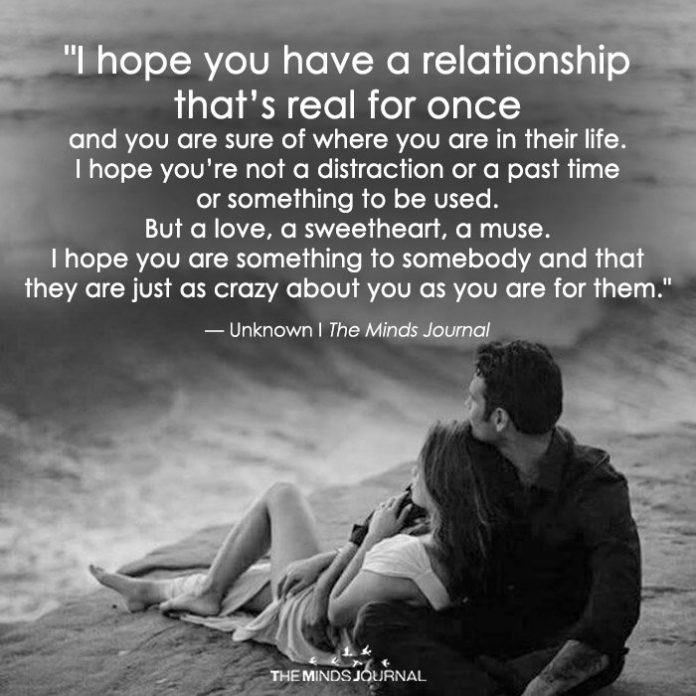
3. You Have a Nagging Feeling
The third sign that your hope is toxic is that you have a nagging feeling: “What if I’m wrong? What if this is incorrect? What if this person is lying?” It can come on suddenly. Maybe you’re only aware of it once in a while.
It’s just a feeling of unease, and it keeps coming up. You replay that toxic hopeful story in your head and try to suppress it, but there’s this nagging feeling that something isn’t right.
Related: Why Optimistic Women Stay Trapped In Toxic Relationships
4. You Deflect Responsibility
The fourth sign that your hope is toxic is that it takes responsibility away from the person who should bear it. Self-reflection is essential when it comes to all of these warning signs.
If you find yourself taking responsibility away from the other person and putting it onto yourself, someone else, or even a higher power – “It’s up to God to correct this,” it’s a sign that something isn’t quite right.
5. They Blame You
The fifth sign that your hope is toxic is a major red flag: If the person you’re dealing with is pressuring you to take responsibility or delegate that responsibility to someone or something else.
They may remind you of your faith in God. They could accuse you of being untrustworthy. And it’s because of this, that you don’t believe the story they told you.
It makes no sense, but they’ll tell you it’s because you lack trust, not because they’re lying. If the other person is pressuring you to make changes or see things differently for this hope to be relevant, it’s a sign that it’s toxic.
These are five indicators that your hope is toxic, and I’d like to leave you with one more tip: if you’re going to stay in this relationship for any length of time, and if you’re going to hold on to this hope, start taking notes. Make a note of how things are going.
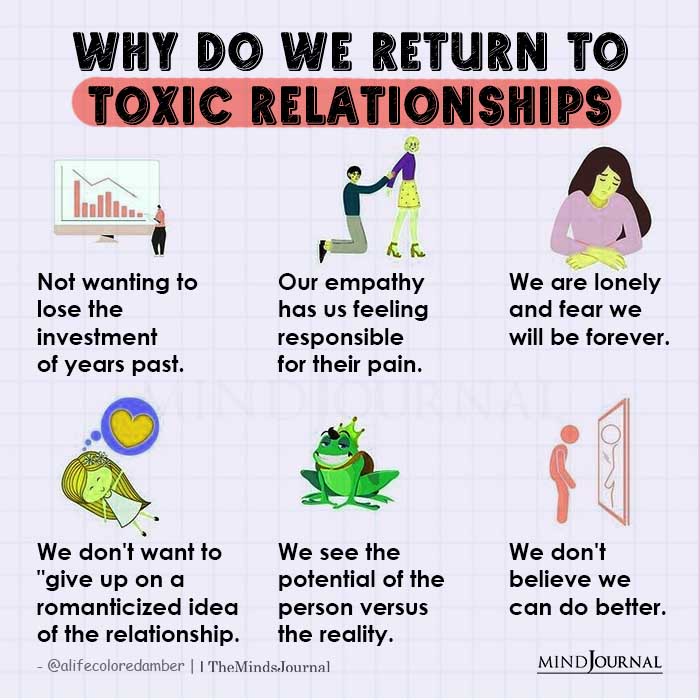
Take notes on what is changing and whether the change is sustainable or if the person reverts to their old habits. Make a record of the steps you take forward and backward. Look back at the end of whatever time you feel is appropriate to see where you started and where you are now.
If no progress is being made, regardless of what story you’re being told or what story you’re telling yourself, holding out hope is toxic. It’ll keep you stuck because you’ll see small steps forward and think you’re making progress, but if you look back at a diary or journal of what’s going on in this relationship, you might see things differently.
Related: How To Let Go When Your Partner Refuses To Change
The goal is not to hold the other person accountable or try to get them to change. Usually, there’s no point in doing so. Keeping records won’t change the person if you’ve been hoping all along, but it will help you see what’s going on in the relationship more clearly.
I hope you found this information helpful. If you did, go ahead and comment below and subscribe to the YouTube channel to see more content like this. I’ll see you next time.
Want to know more about the signs of toxic hope? Check this video out below!
Written By Common Ego Originally Appeared On Common Ego
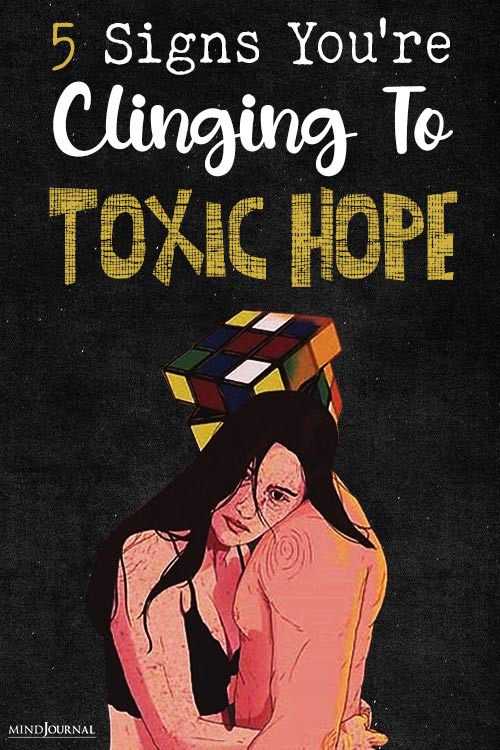
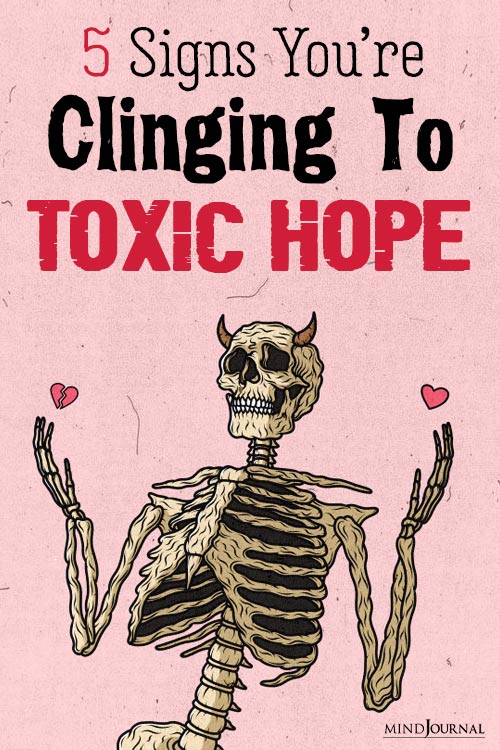
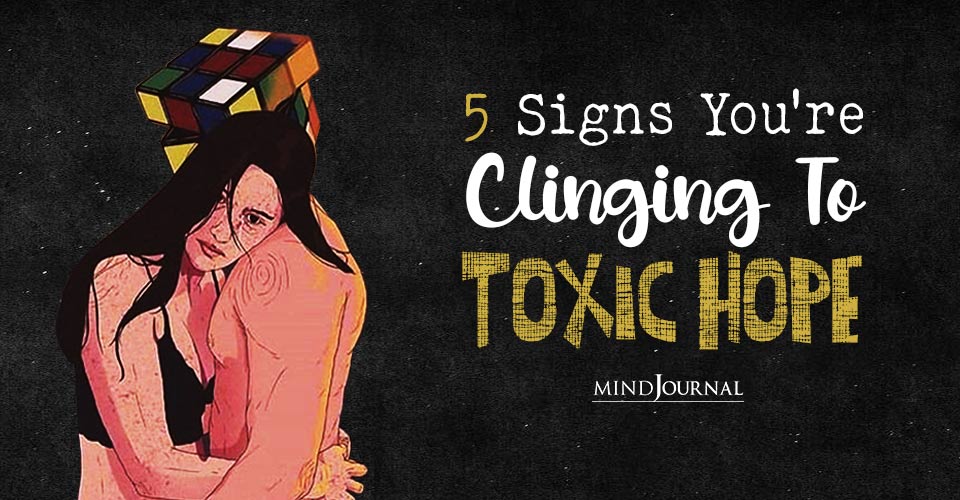
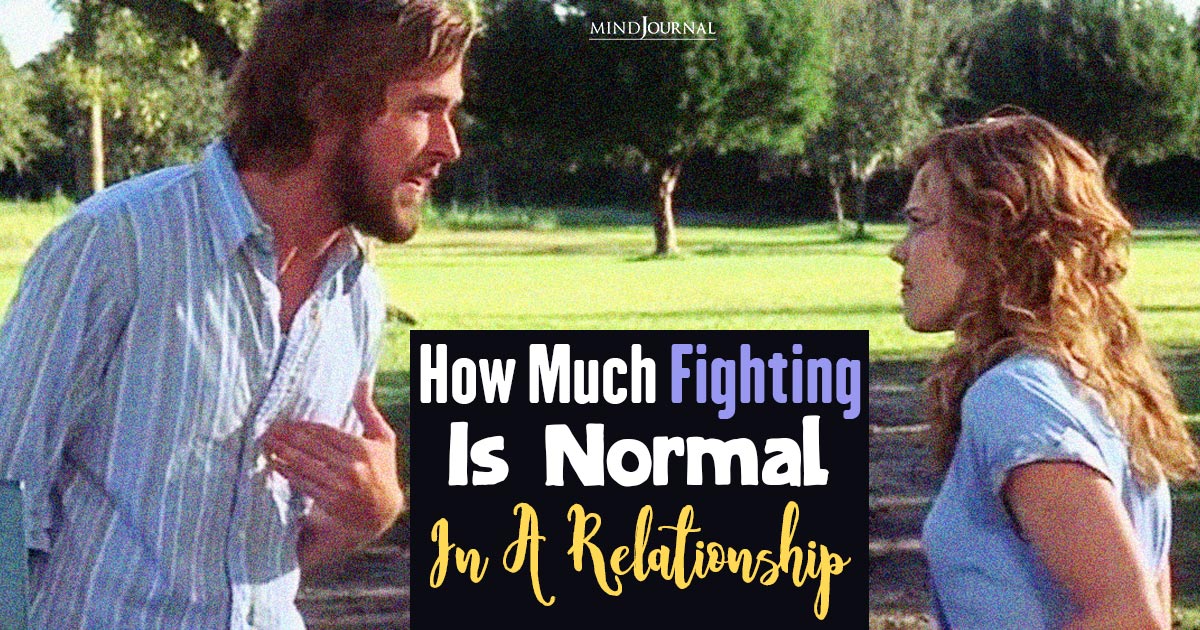
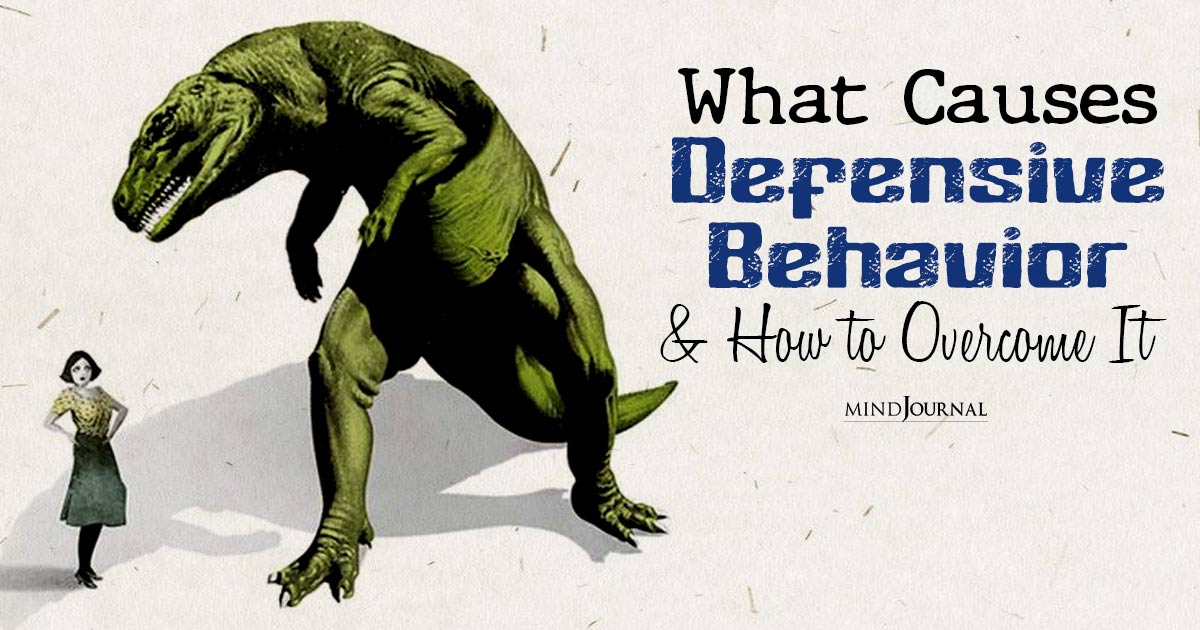
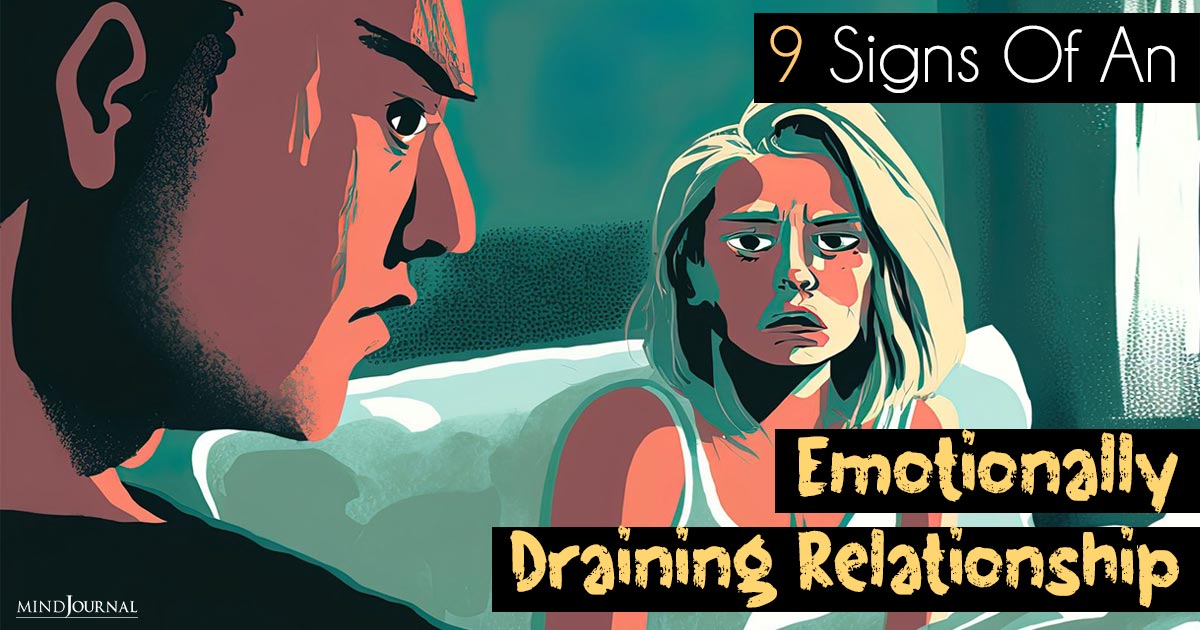




Leave a Reply
You must be logged in to post a comment.